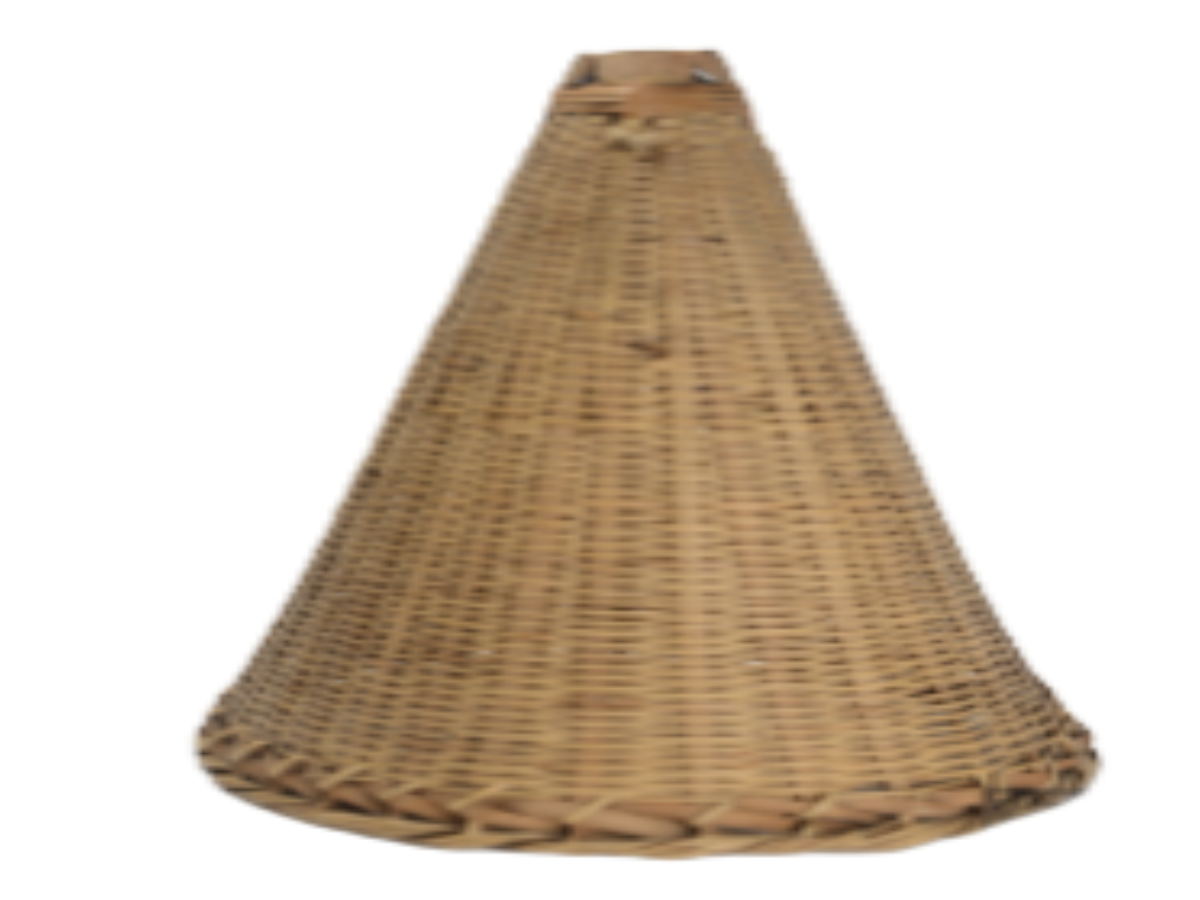State
Tribe Name
Art Type
short description
Another handmade object of utmost importance is the cane basket used by the Khasi tribe-a primitive tribe of Meghalaya in India. This conically shaped basket, made from indigenous cane materials, is used elsewhere for carrying harvests like fruits and vegetables and for other day-to-day essentials. It largely represents the Khasis' comprehension of the environment and stands for sustainability in crafting.
Thumbnail

Filter Postion
Right
Filter Background
Off
Theme
Filter Header Image

content
Image

description
Another handmade object of utmost importance is the cane basket used by the Khasi tribe-a primitive tribe of Meghalaya in India. This conically shaped basket, made from indigenous cane materials, is used elsewhere for carrying harvests like fruits and vegetables and for other day-to-day essentials. It largely represents the Khasis' comprehension of the environment and stands for sustainability in crafting.
Skilled artisans of the Khasi weavers make these baskets with an old art of weaving handed down through the generations. The cane is harvested, treated, and split into fine strips, which are heavily woven to give strength and flexibility. The design of the conical basket allows the evenly distributed weight that it carries for ease during transport, most of the time on the forehead or across the shoulders using a strap. In the Khasi settlement, these baskets are utilized mainly for farming, household chores, and market transport, thereby making them an integral part of everyday life.
Lightweight yet strong, it travels effortlessly across the hilly terrain of Meghalaya. Besides being useful, the cane basket has social significance, too; it is gifted during various traditional ceremonies and is a symbol of Khasi craftsmanship. With modernization, plastic and metal containers have taken over, but steps are being taken to keep the tradition of bamboo basket weaving alive in the society through local markets and handicraft ventures. The cane basket still remains a timeless icon, representing Khasi culture and their sustainable lifestyle and unrivaled weaving skill.
Skilled artisans of the Khasi weavers make these baskets with an old art of weaving handed down through the generations. The cane is harvested, treated, and split into fine strips, which are heavily woven to give strength and flexibility. The design of the conical basket allows the evenly distributed weight that it carries for ease during transport, most of the time on the forehead or across the shoulders using a strap. In the Khasi settlement, these baskets are utilized mainly for farming, household chores, and market transport, thereby making them an integral part of everyday life.
Lightweight yet strong, it travels effortlessly across the hilly terrain of Meghalaya. Besides being useful, the cane basket has social significance, too; it is gifted during various traditional ceremonies and is a symbol of Khasi craftsmanship. With modernization, plastic and metal containers have taken over, but steps are being taken to keep the tradition of bamboo basket weaving alive in the society through local markets and handicraft ventures. The cane basket still remains a timeless icon, representing Khasi culture and their sustainable lifestyle and unrivaled weaving skill.
Image Mode
portrait
promoted
Off
Verified
Off
